24 Most Common Weight Loss Myths
-
1. If I stop eating, I lose weight
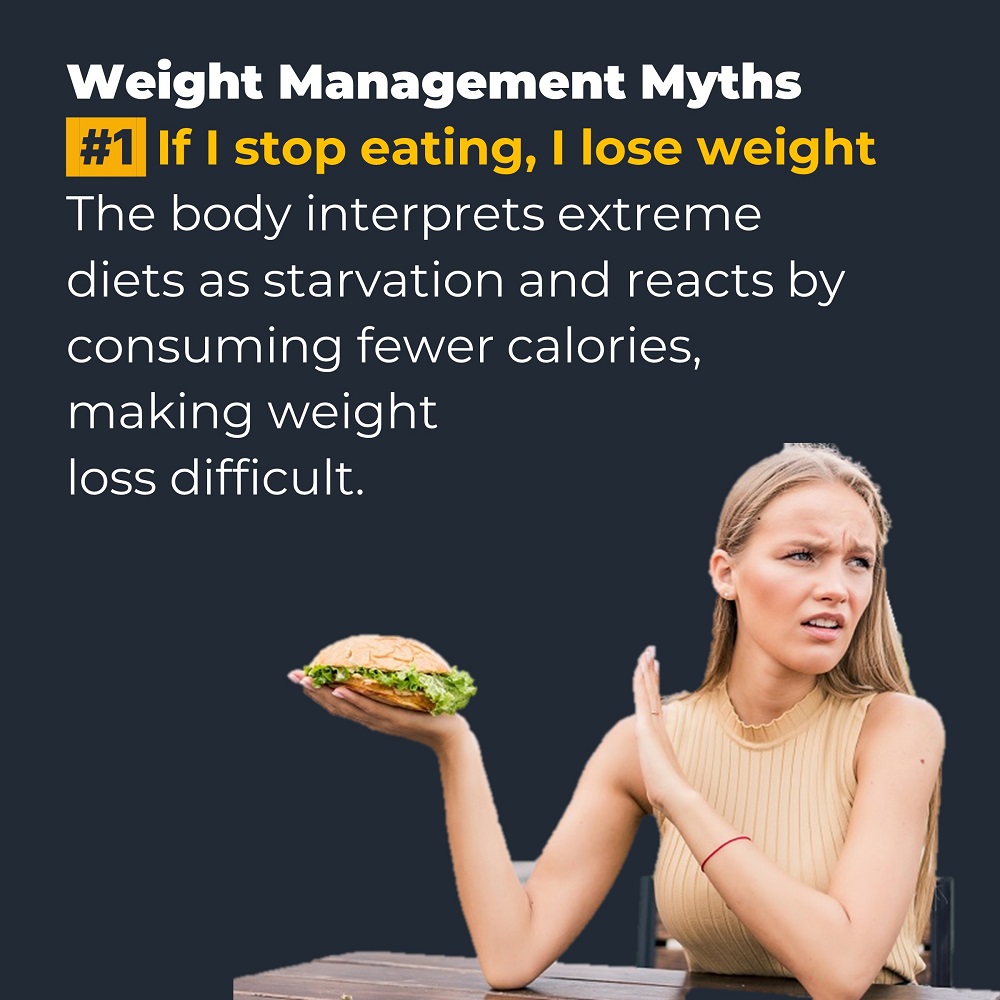
Not only it is bad for your health, but the results are not promising in the long run.
The problem with extreme diets is that your body perceives sudden cut in food as a sign of starvation and reacts accordingly by consuming as few calories as possible, which makes weight loss very hard and not sustainable.
Stay away from anything temporary and sudden.
-
2. Quick weight loss is good
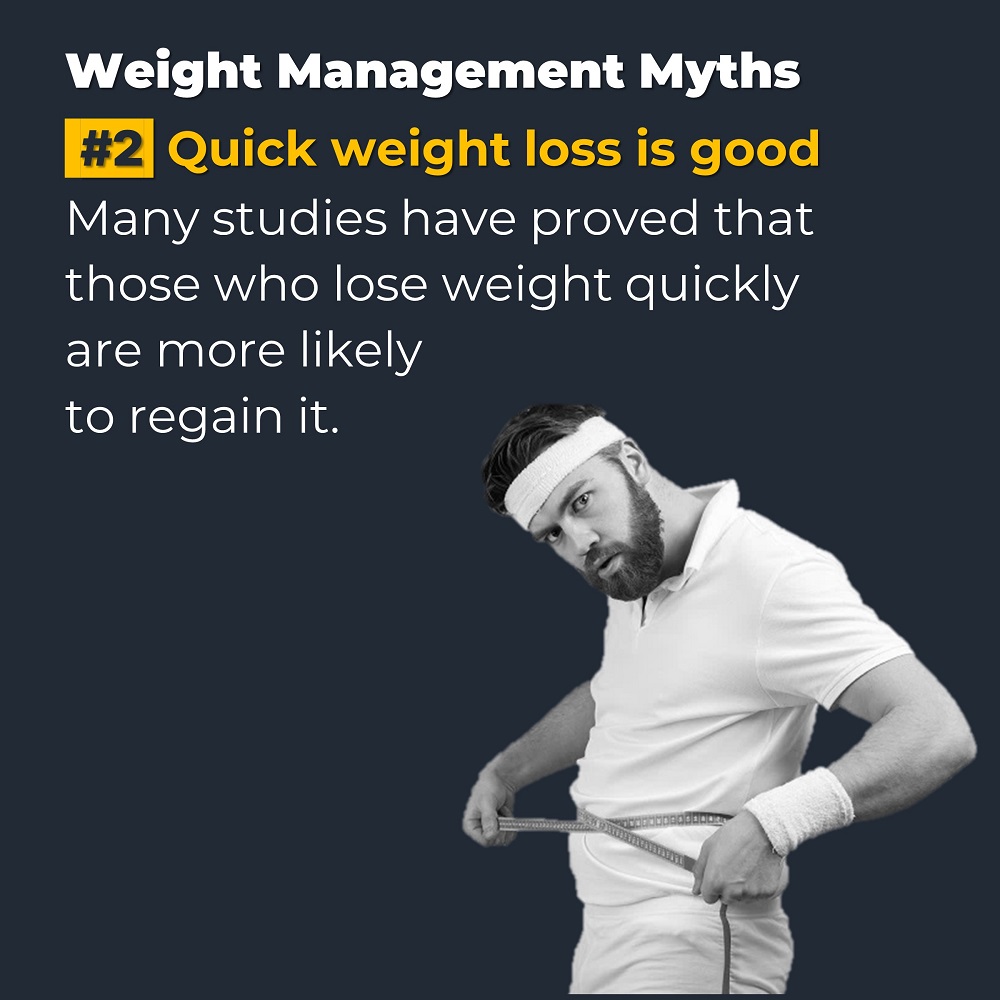
It can work but it is a bad idea. Many studies have reached the conclusion that those who lose weight quickly are more likely to regain it.
Weight is best lost in a gradual, slow process.
-
3. All carbs are bad
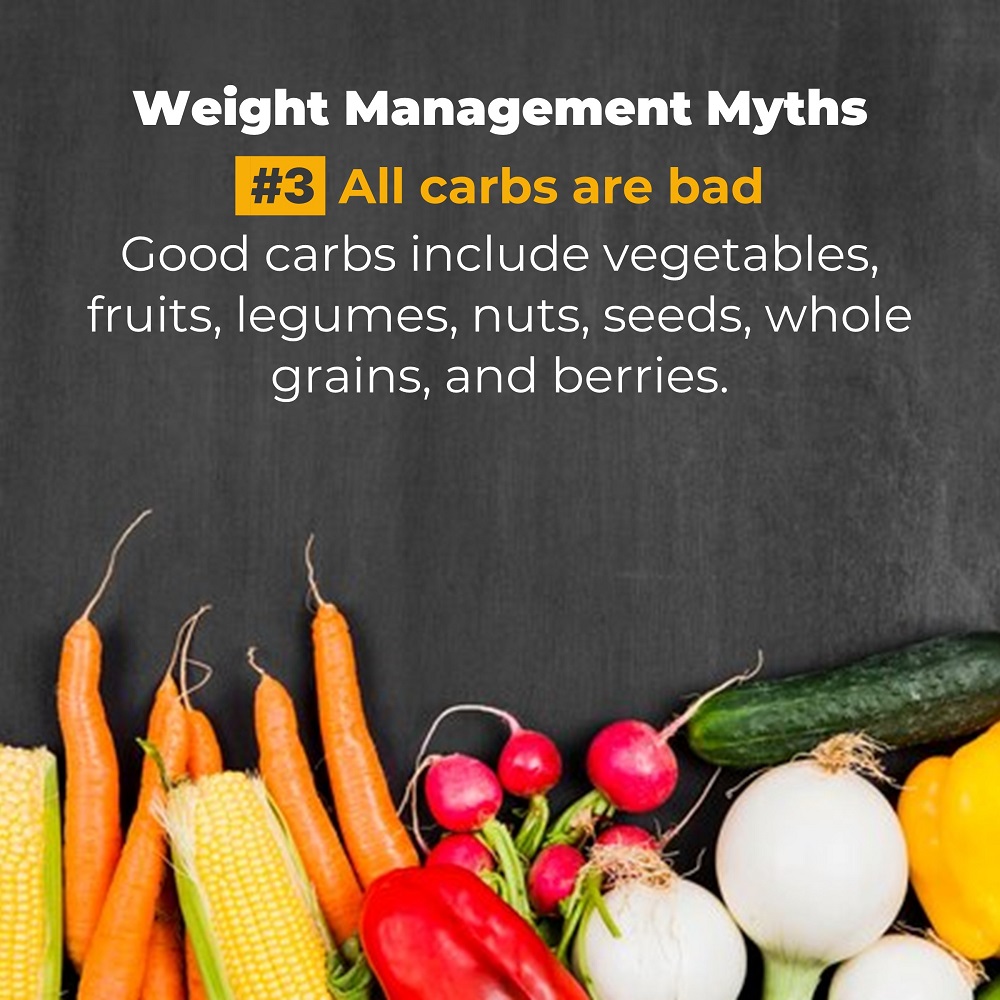
Carbs have a bad reputation but not all carbs are bad for you. As a matter of fact, some are extremely beneficial and high in nutrients and fiber and will help you lose weight and stay fit.
Good carbs include vegetables, fruits, legumes, nuts, seeds, whole grains, oats, pumpkins, berries, broccoli, and apples
-
4. I can eat anything if I exercise
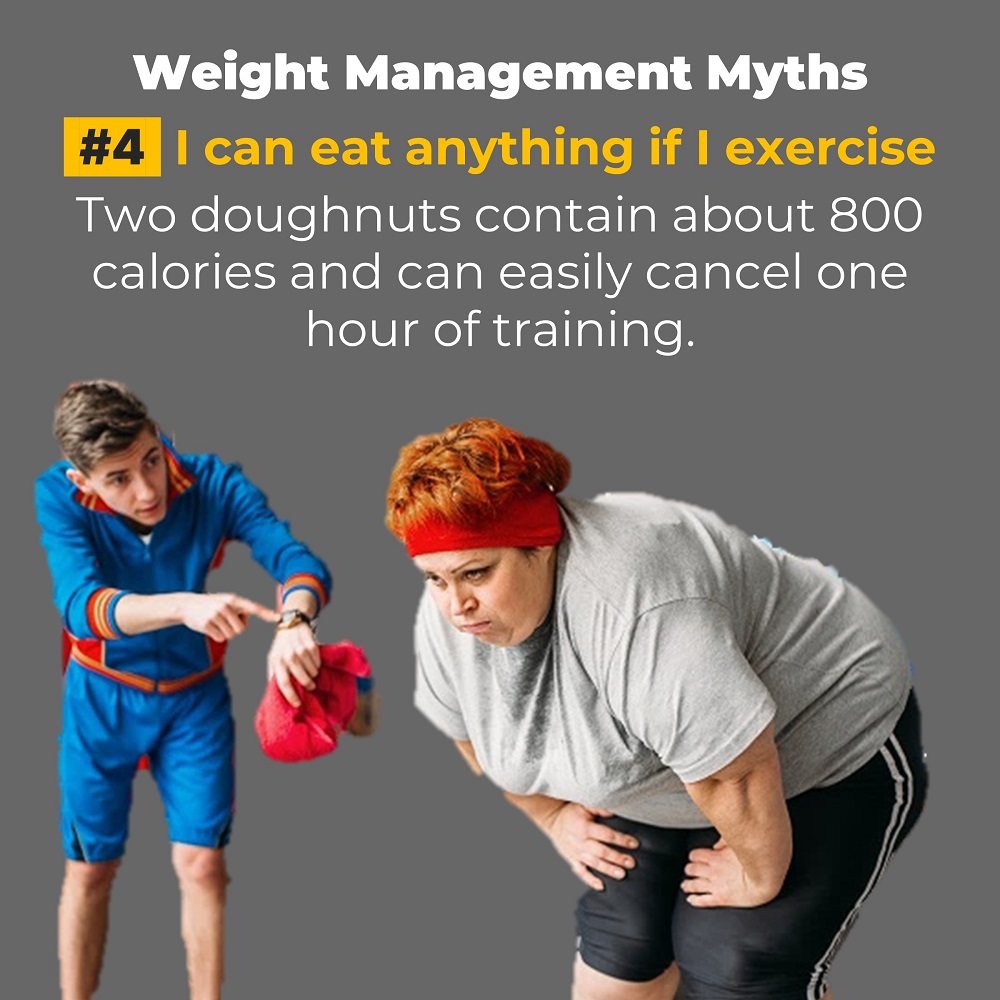
No, you can’t.
Two doughnuts contain approximately 800 calories and can easily cancel one hour of jogging on the treadmill.
We tend to underestimate how many calories food contains and overestimate how many calories we burn in workouts.
There is no alternative to eating healthy, low-calorie food.
-
5. Exercise is not required
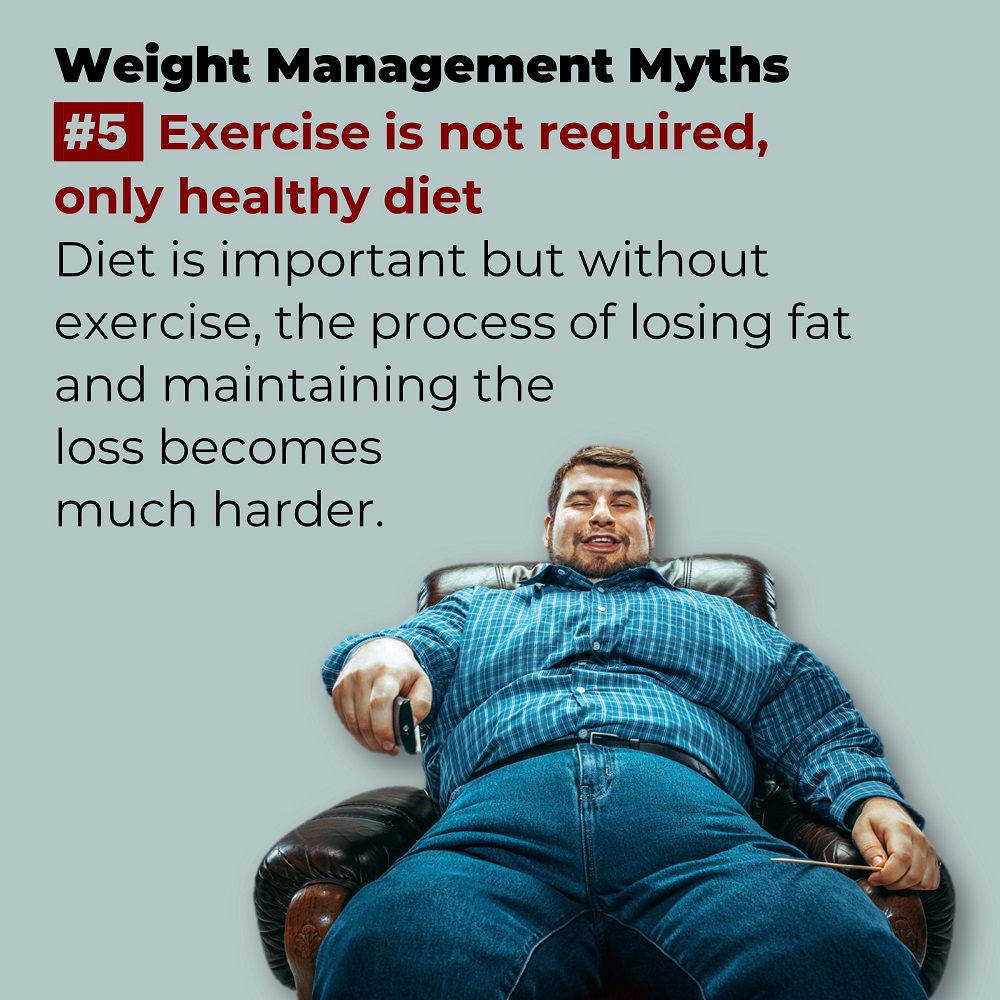
A healthy diet is very important to get rid of fat but without exercise, the process of losing weight and maintaining the loss can be very hard.
When you reduce your calorie intake from food, your body automatically reduces its metabolism and calorie burning as a result.
Losing weight gets harder and harder every passing week because you can’t continue reducing your calorie intake forever.
The best way to increasing your metabolism is through exercise and building muscle. Besides, exercise is good for your health in general. It is not all about losing weight.
-
6. The same diet works for everyone
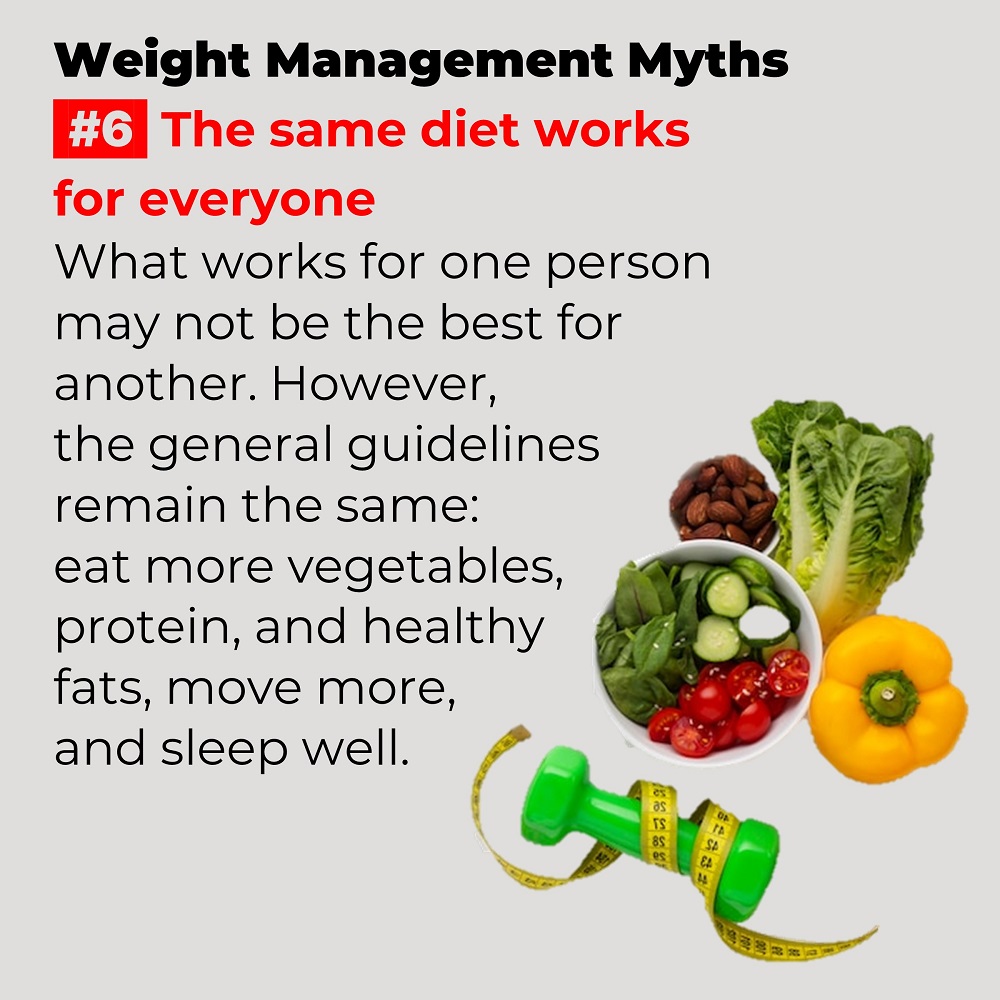
The human body is a very complex machine with hundreds of different interrelated factors playing along with each other.
What works for one person may not necessarily be the best for another.
That being said, there are a few general guidelines that should be ok for everyone: eat more vegetables, protein, healthy fats, move more, sleep better, and you should be just fine.
-
7. Walking on the treadmill for 30 minutes is enough exercise
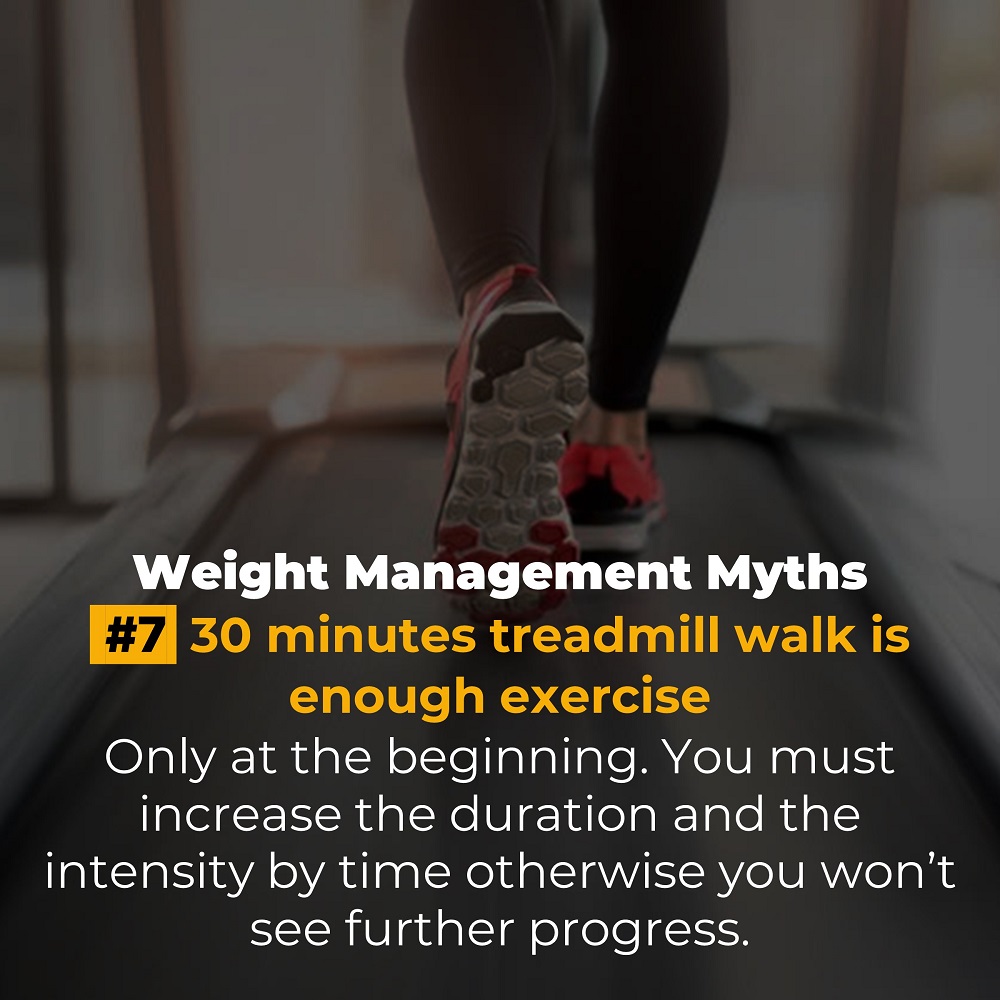
Sticking to one exercise and repeating it every day will not get you far.
Why?
The human body is an adaptation freak. It has the annoying (yet convenient) habit of learning how to expend as little energy as possible to do repetitive tasks.
The first week you step on the treadmill, you may burn 800 calories. The second week, maybe 700. The third week, 600. You will eventually be burning no more than 300 calories per session.
What is happening? Your body adapts to the workout and learns how to use as little energy as possible to complete it.
So, what is the solution?
Well, there is nothing wrong with walking on the treadmill but you must have variety as well. Variety can be introduced in two ways: increase intensity (run faster, the recommended way) or increase duration (run for longer, less effective).
-
8. All calories are the same
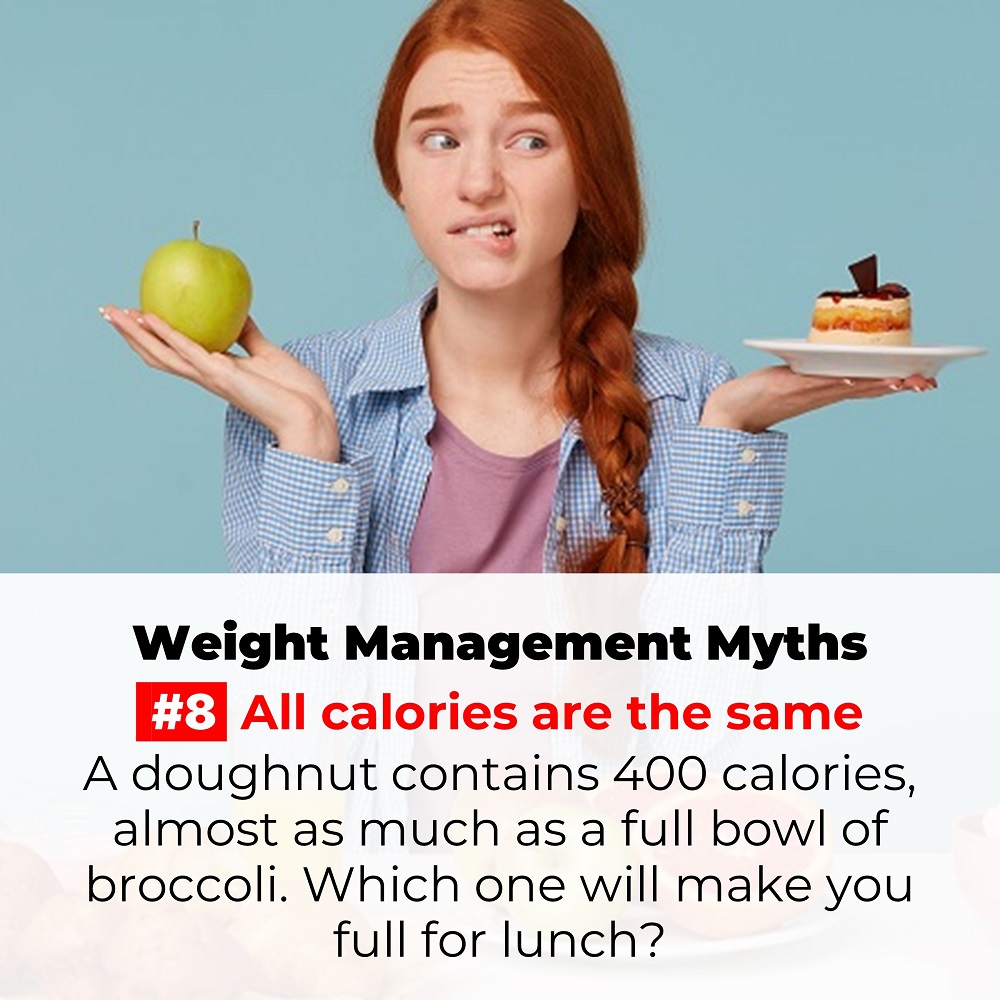
In chemical reactions yes but not in human physiology.
A doughnut contains approximately 400 calories. A full bowl of broccoli contains no more than 200 calories. Which one would make you full if you had it for lunch?
You need to eat six or seven doughnuts to feel full which adds up to 2500 calories!!
A calorie is a calorie regardless of where it comes from, however; by eating low-calorie food you will feel full and consume fewer calories at the same time.
-
9. Eating fat makes you fat
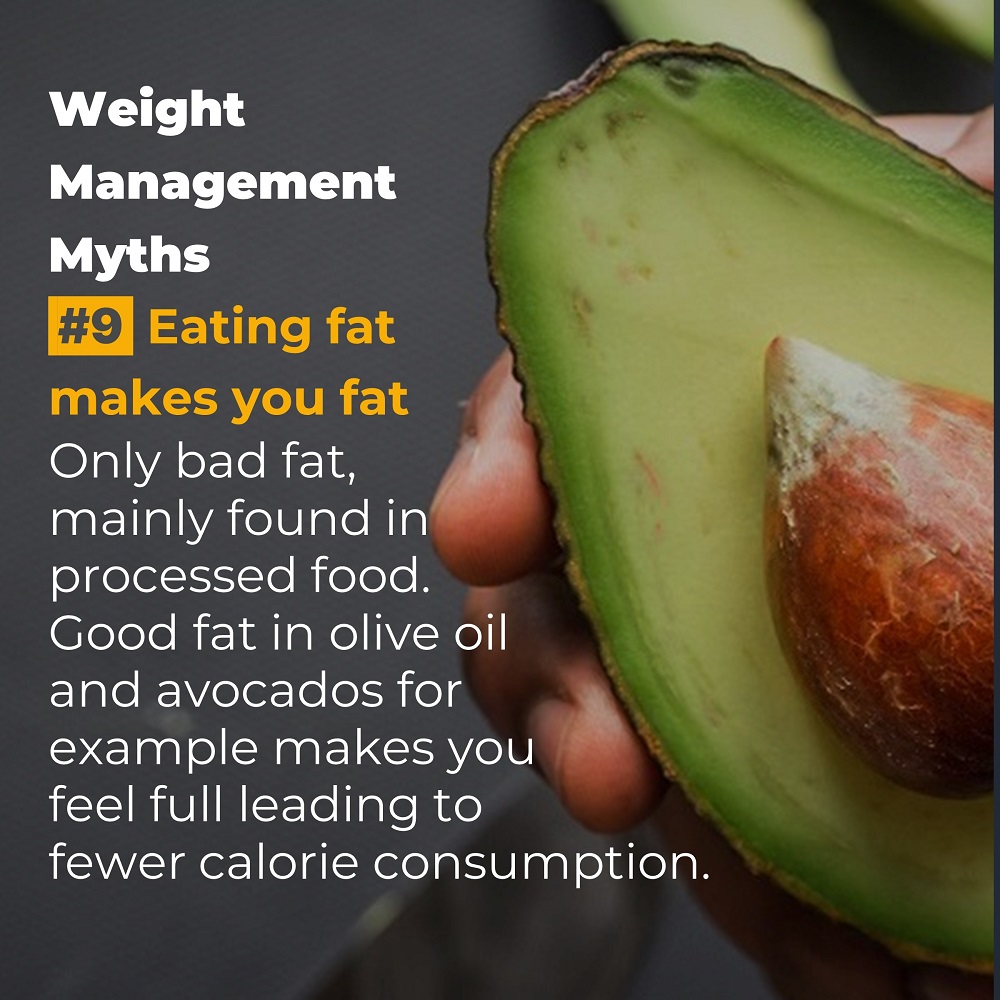
This is one of the biggest misconceptions circulating around.
First of all, there are two types of fat: body fat and fat in food.
They are not the same.
When you eat fat from food, the fat does not magically get transferred into your belly as belly fat.
Belly fat can come from any food: carbs, protein, or fat. Body fat is created any time you eat more calories than you expend. Your body stores the extra calories as fat for later use. It is that simple.
Fat in food can be good or bad. Bad fat can be found in chips and processed food and that is the fat that you should be avoiding.
Good fat can be found in olive oil and avocados for example. The good thing about healthy fats is that they keep you feeling full for longer periods than carbs, which leads to you feeling less hungry and consuming fewer calories throughout the day.
-
10. Weight Loss = Fat Loss
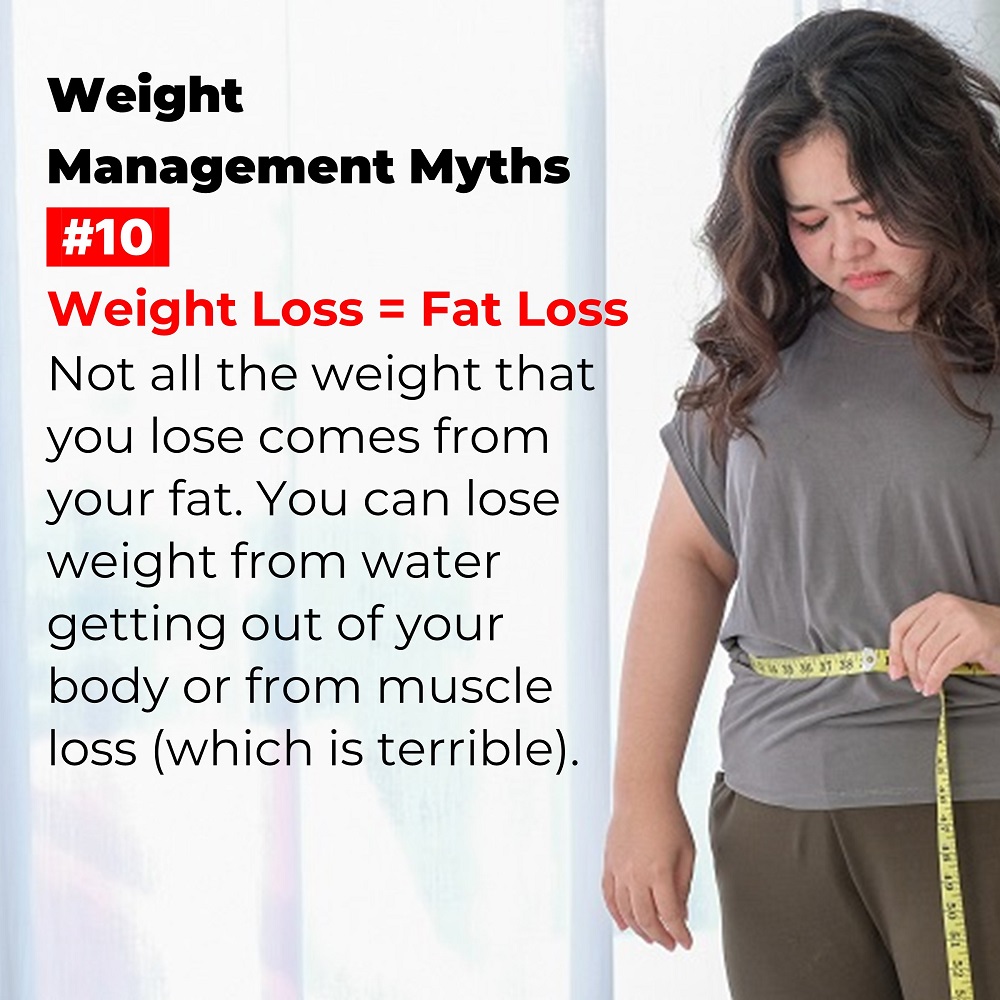
Not all the weight that you lose comes from your fat. You can lose weight from water getting out of your body or from muscle loss (which is terrible).
If you measure your weight before and after a sauna session you will notice a slight weight drop that is majorly comprised of water, not fat. Water weight is quickly regained as you get hydrated again.
Body fat is lost by creating a calorie deficit: that is expending more calories than you consume.
-
11. Low fat is better than full fat
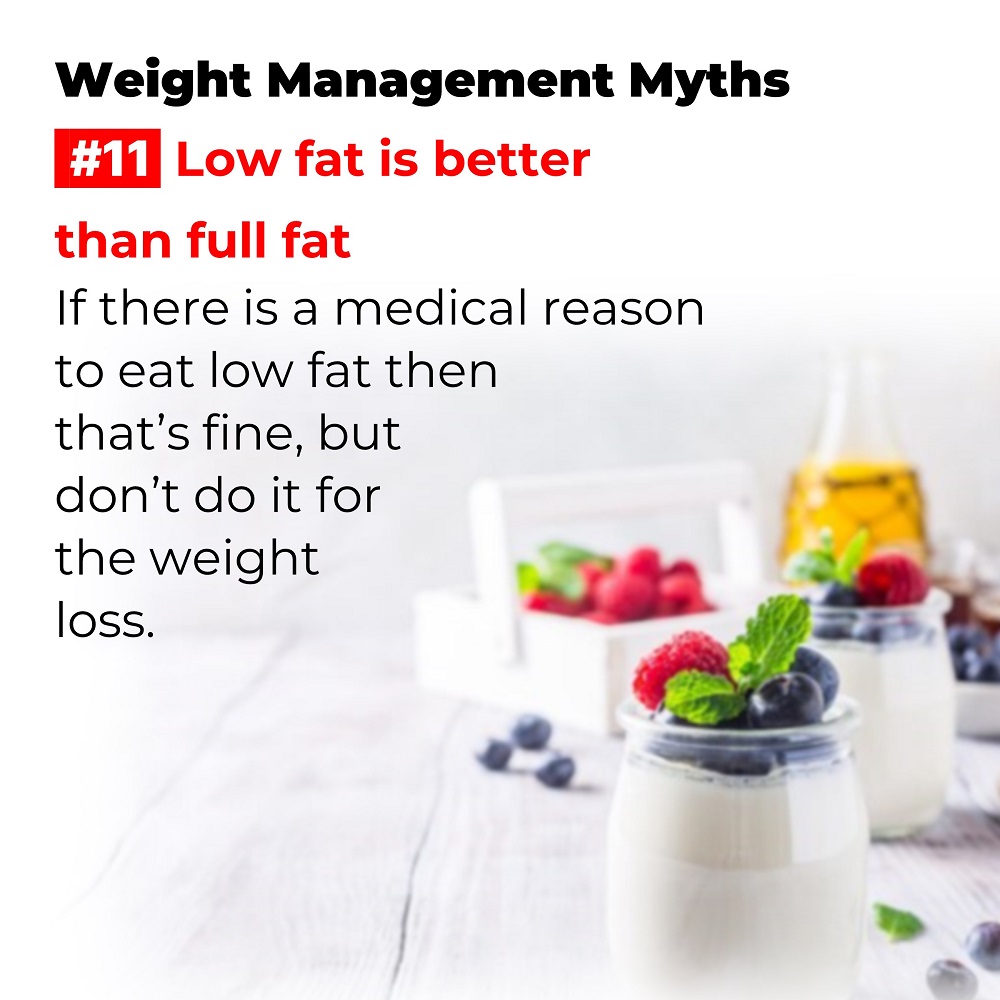
I have explained earlier that fat by itself is not the source of weight gain. That being said, not all fat is good.
There are some good reasons to stay away from fatty food but the problem is that when it comes to processed food, you really don’t know what else is there.
Manufactures usually compensate for the lack of fat with high-calorie ingredients that are not any better.
If you want to go low fat that’s fine, but don’t do it for weight loss.
-
12. You can target fat in certain areas
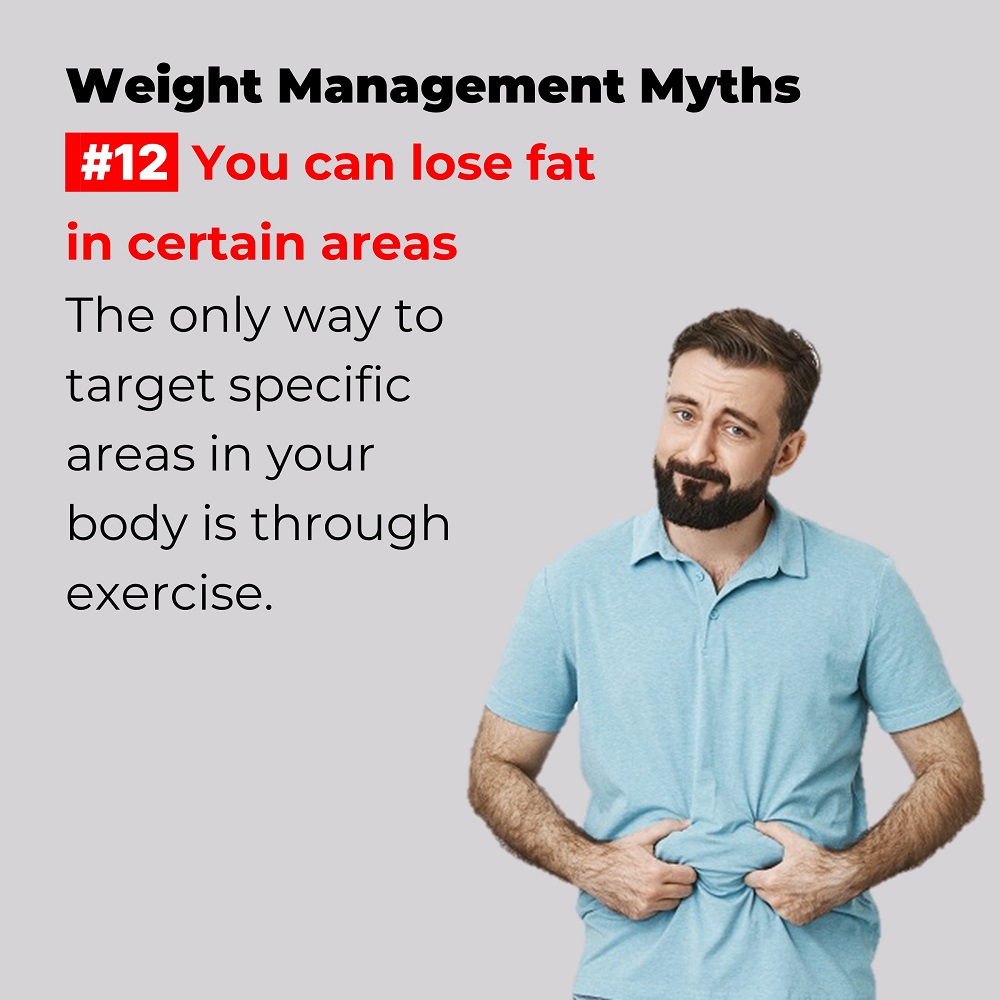
You can’t choose what areas in your body to lose fat from. Your body determines that on your behalf.
Some people claim that certain food can make you burn fat from certain areas but there is no medical evidence to back up this claim.
The only way to target a specific area in your body is through exercise.
-
13. Temporary diets work
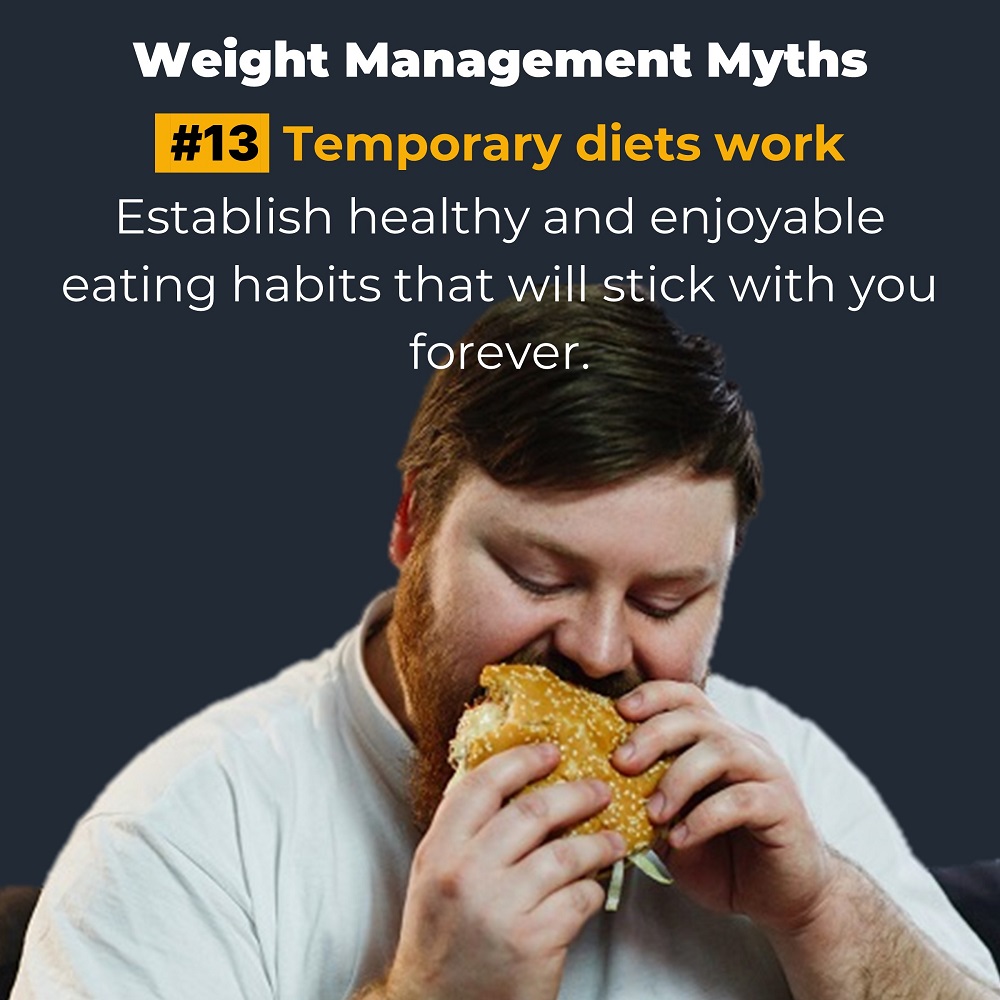
They work as long as you follow them, once you stop, weight gaining resumes.
The problem with temporary diets is that they are temporary. What do you think will happen when you resume your old eating habits?
Stop adopting quick temporary diets and establish healthy and enjoyable eating habits that will stick with you forever.

-
14. Weight is the only indicator of good health
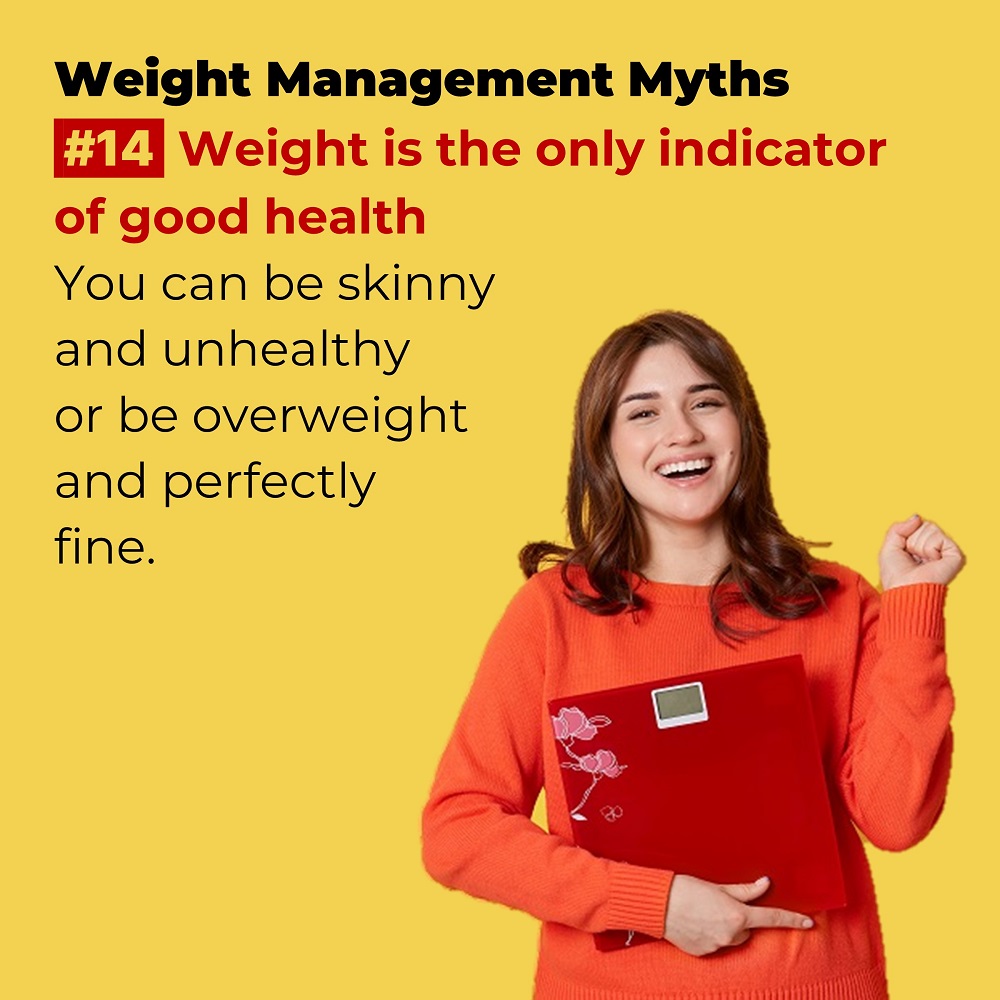
The notion of weight being associated with good health has been so long advertised and celebrated that most people assess their wellbeing solely on whether they are overweight or not.
You can be skinny and unhealthy or be overweight and be perfectly fine.
As an example, if you build muscle you will be losing belly fat, which is good, but your weight will be actually increasing because muscle weighs more than fat.
A better indicator of good health (among many others) is body fat percentage. My guess is that weight has become the de facto for well-being due to its ease of measurement.
-
15. Healthier foods are more expensive
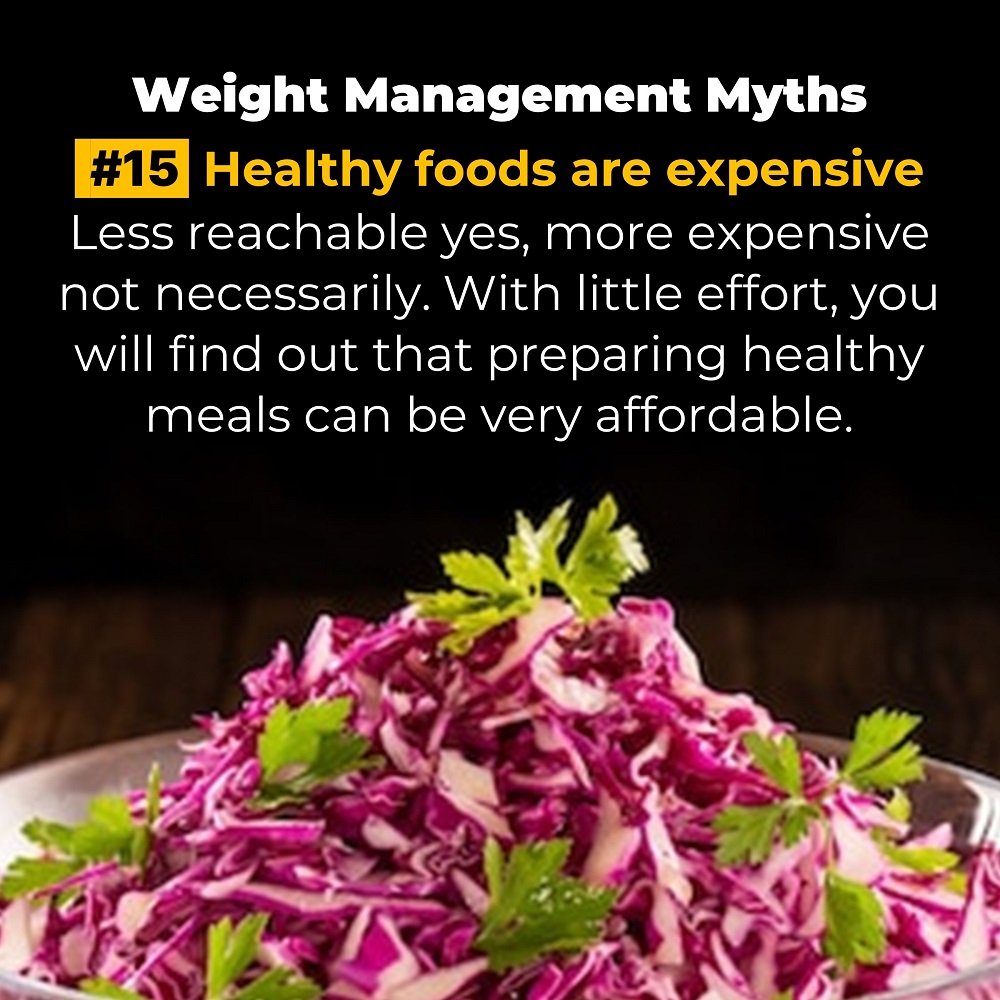
Less reachable yes, more expensive not necessarily. If you have taken the brave and wise decision of being fit, then you will find out that preparing a healthy meal can be very affordable. Just make sure that you have the right ingredients.
-
16. Drinking water makes you lose weight
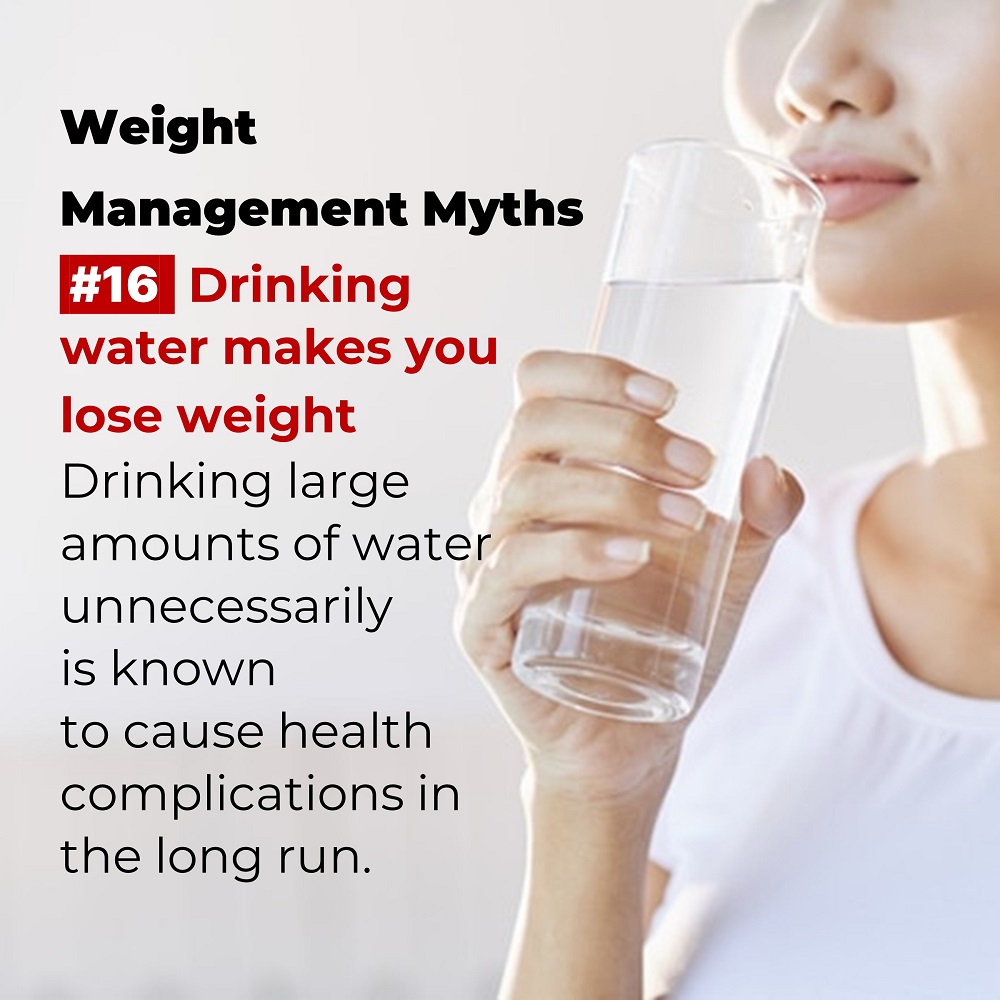
There is no scientific evidence that correlates weight loss with drinking water directly. However, a number of studies have concluded that drinking water 30 minutes before meals may curb your appetite a bit.
Drinking large amounts of water unnecessarily is known to cause health complications in the long run. Drink when you feel thirsty.
-
17. Some food burn body fat
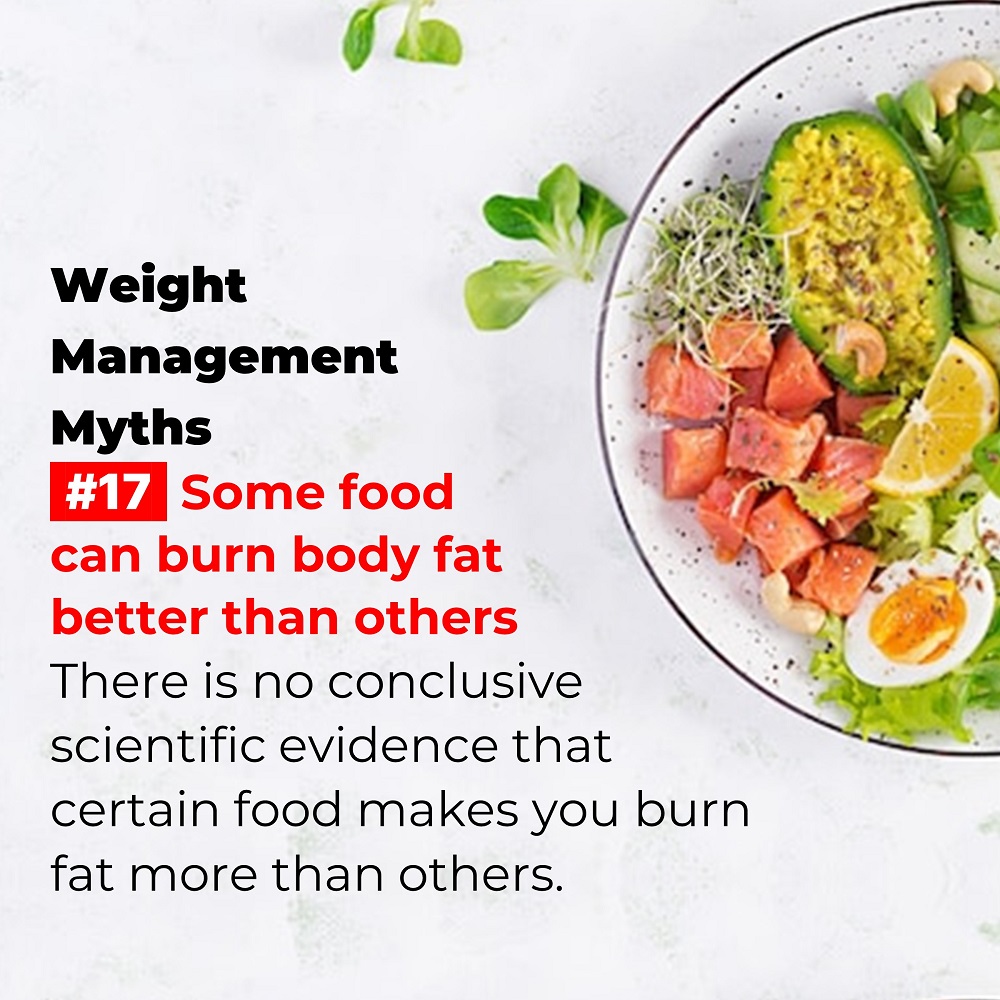
There is no conclusive scientific evidence that certain food makes you burn fat more than others.
As explained earlier, fat in your body is created when calories entering your body outnumber the calories that you burn.
-
18. Gluten free food makes you lose weight
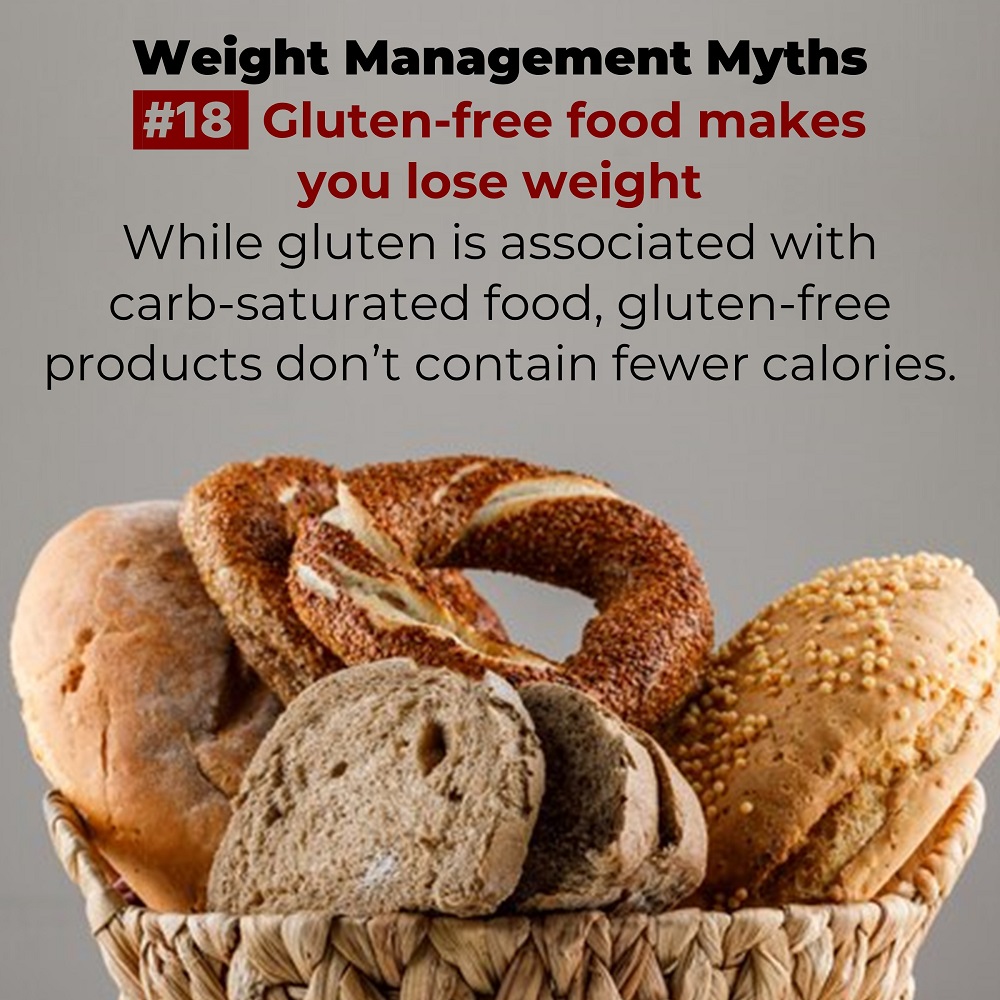
While gluten is normally associated with carbs-saturated food, gluten-free products do not necessarily contain fewer calories. You must still read the label on the product.
-
19. Zero calorie coke is a safe alternative
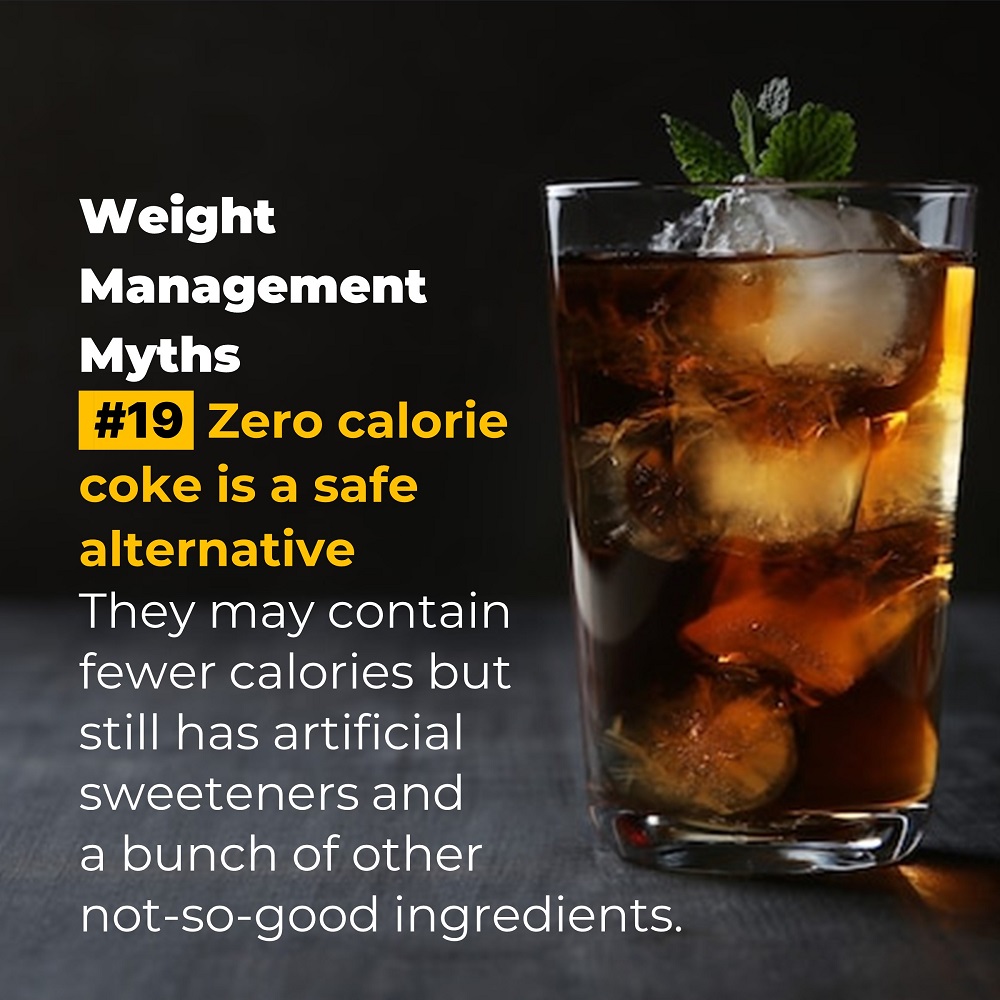
It may contain fewer calories but still has artificial sweeteners and a bunch of other not-so-good ingredients.
Steer away from them unless you really have to. Kudos to you if you can have a burger without Coke!
-
20. I can eat as much healthy food as I want
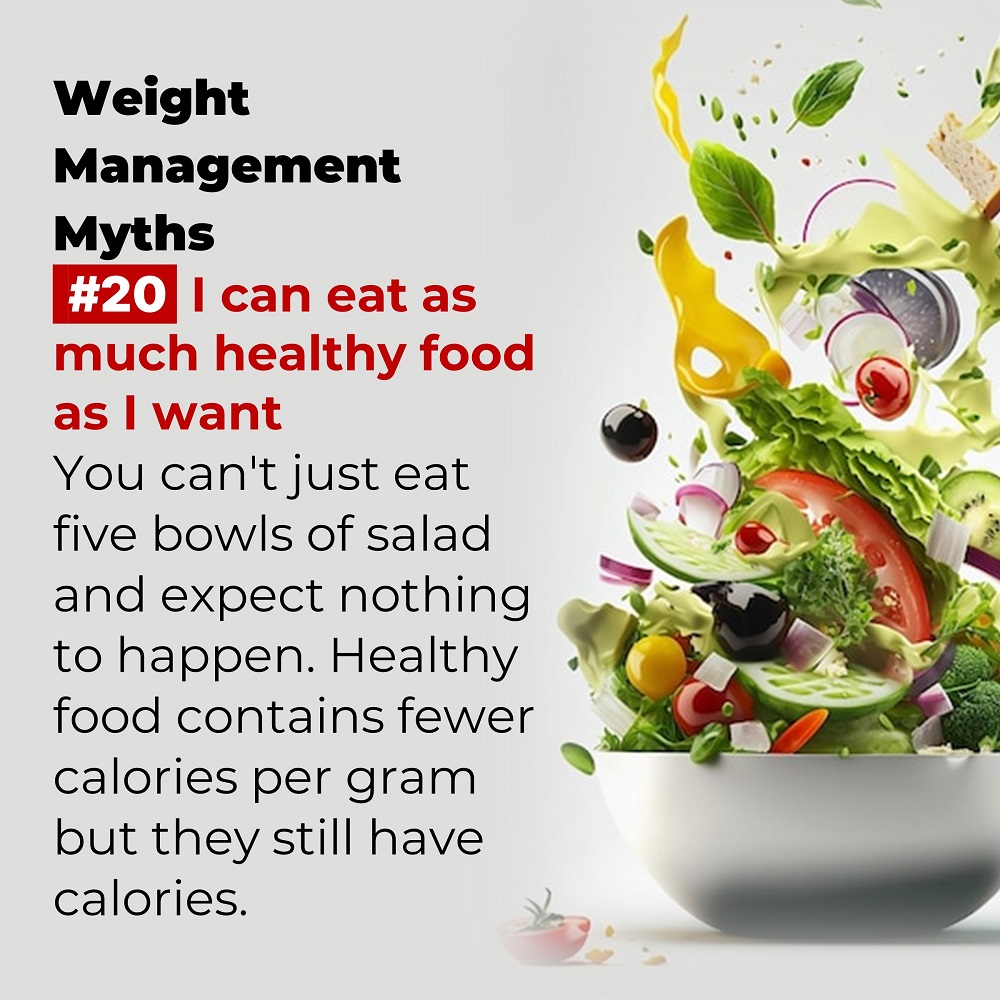
You can't just go about and eat five large bowls of salad and expect nothing to happen. Healthy food contains fewer calories per gram but they still have calories.
You need balance and moderation even with healthy choices.
-
21. Weight loss is hard and boring
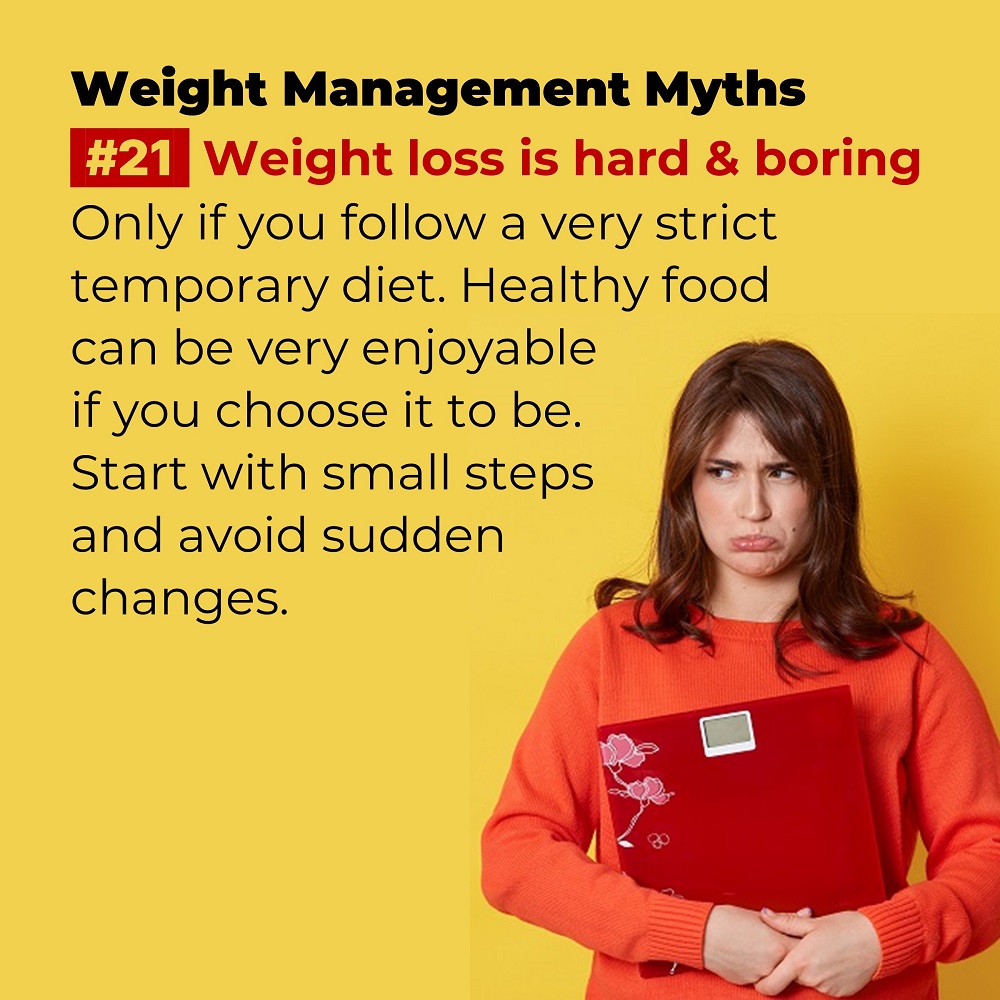
Only if you follow a very strict temporary diet. Healthy food can be very enjoyable if you choose it to be. Start with small steps and avoid drastic changes.
-
22. Food replacements are good
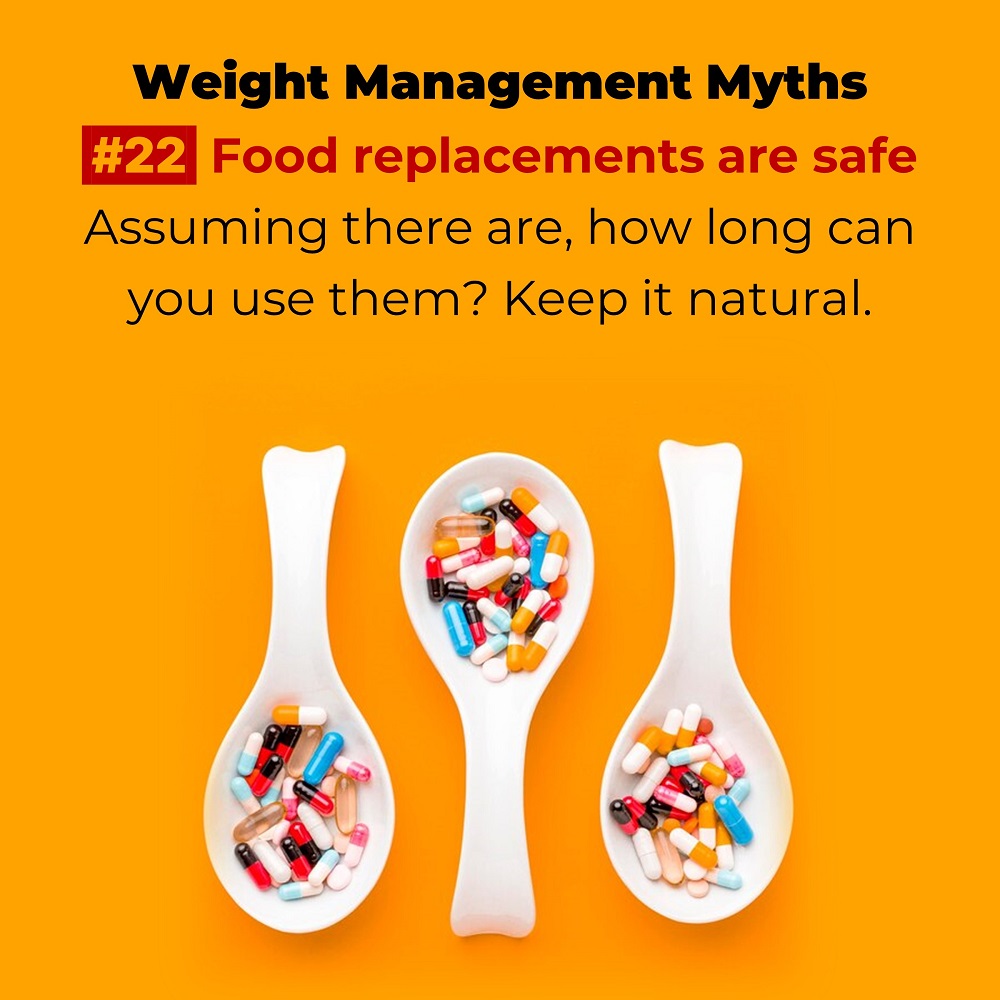
Because you can only use them for a limited period of time. What happens when you stop?
I would recommend that you steer away from anything artificial and processed at any cost.
You simply don't need them. Why not just go with the natural options?
-
23. Diet products are good
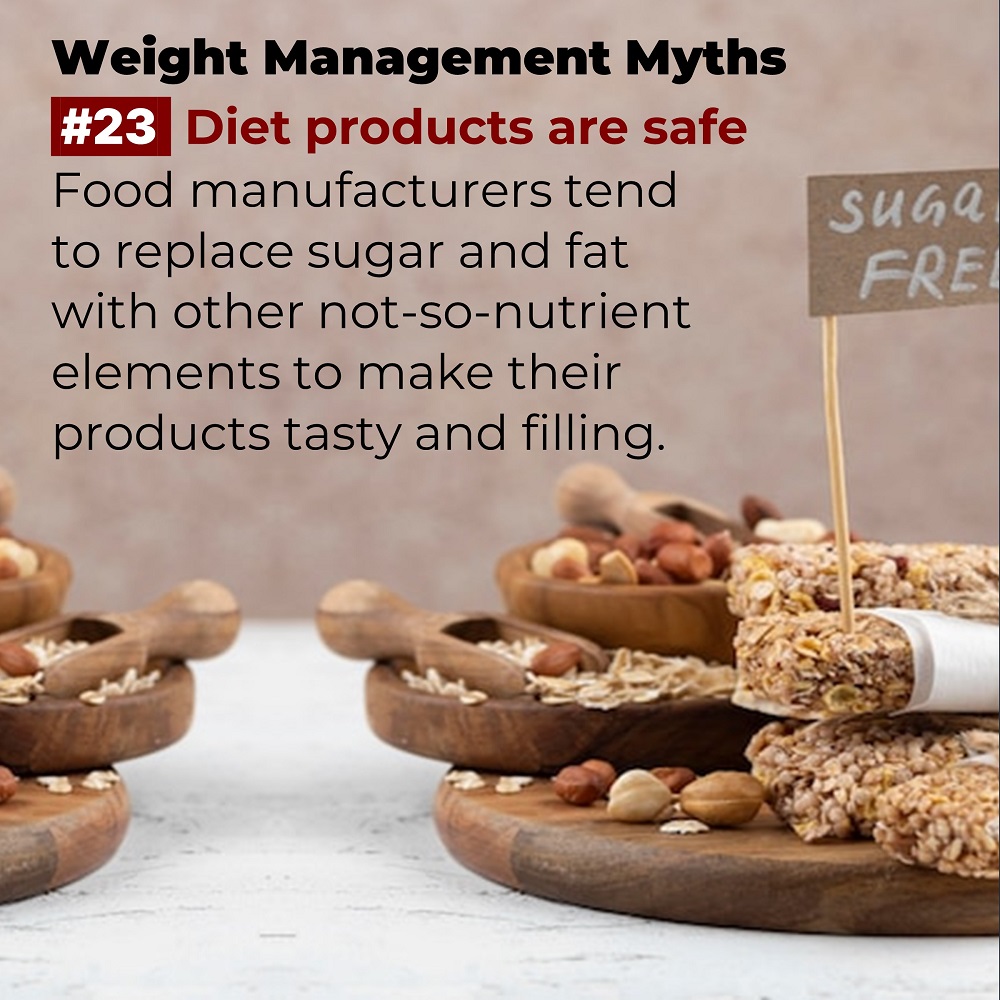
Stay away from any processed food I say. Food manufacturers tend to replace sugar and fat with other not-so-nutrient elements to make their products tasty and filling.
-
24. Only solid food has calories, but drinks don’t
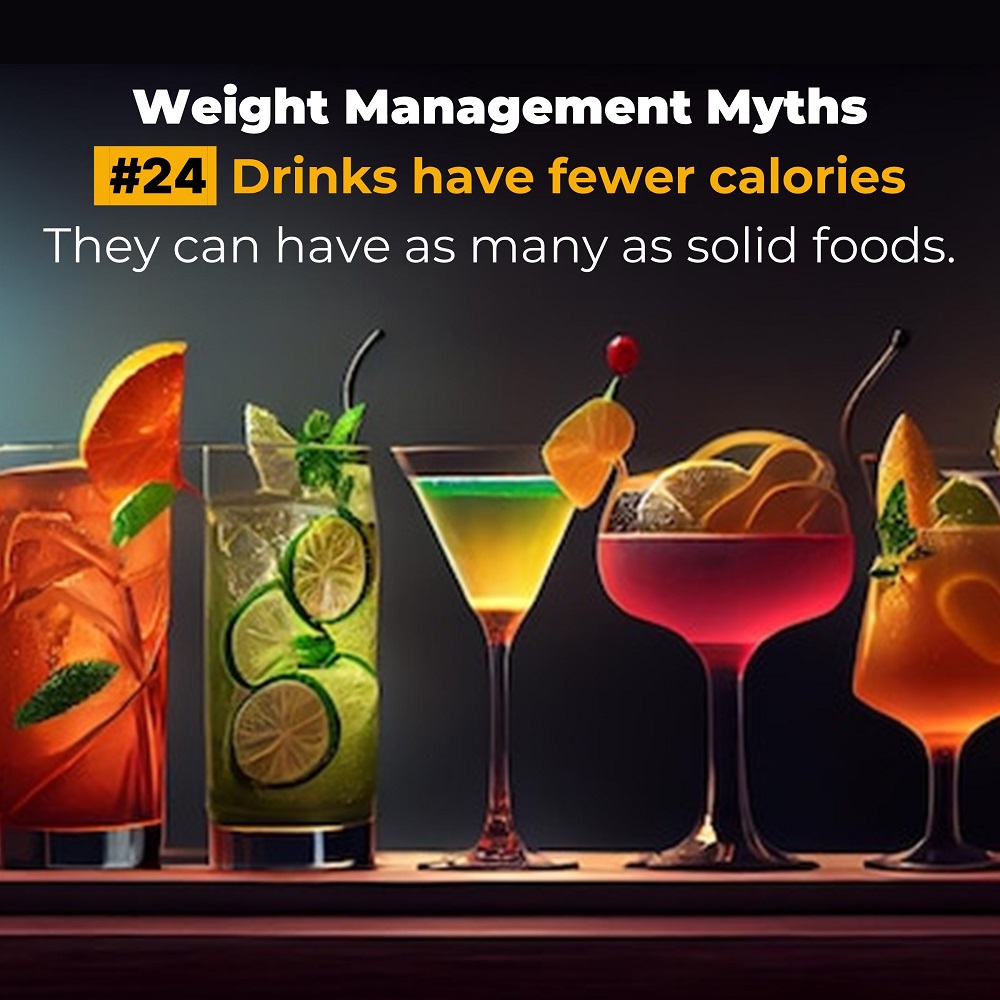
Calories can be present in drinks as much as they are in solid foods. Also drinking your calories is even worse than eating due to the missing fiber.
If you had to choose between drinking orange juice or eating an orange, always go for the whole fruit.
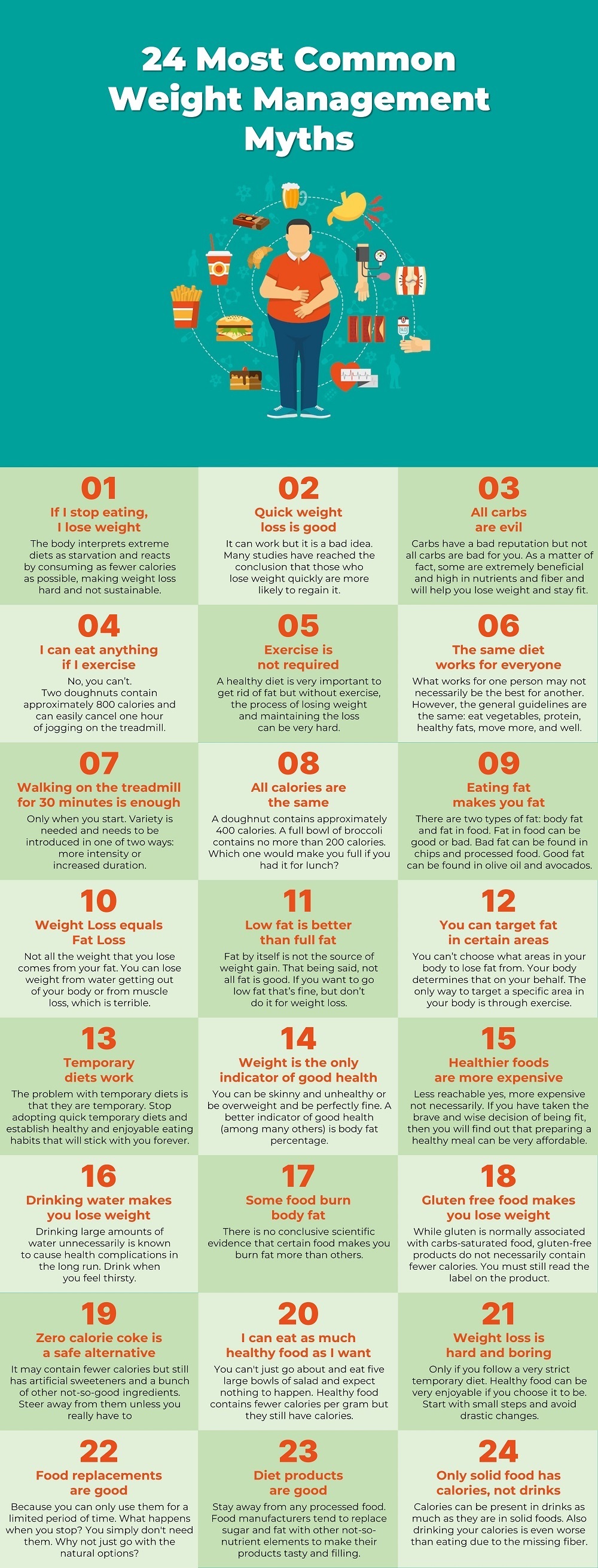



 FEED
FEED JOIN
JOIN MONETIZATION
MONETIZATION HELP
HELP LOGIN
LOGIN













